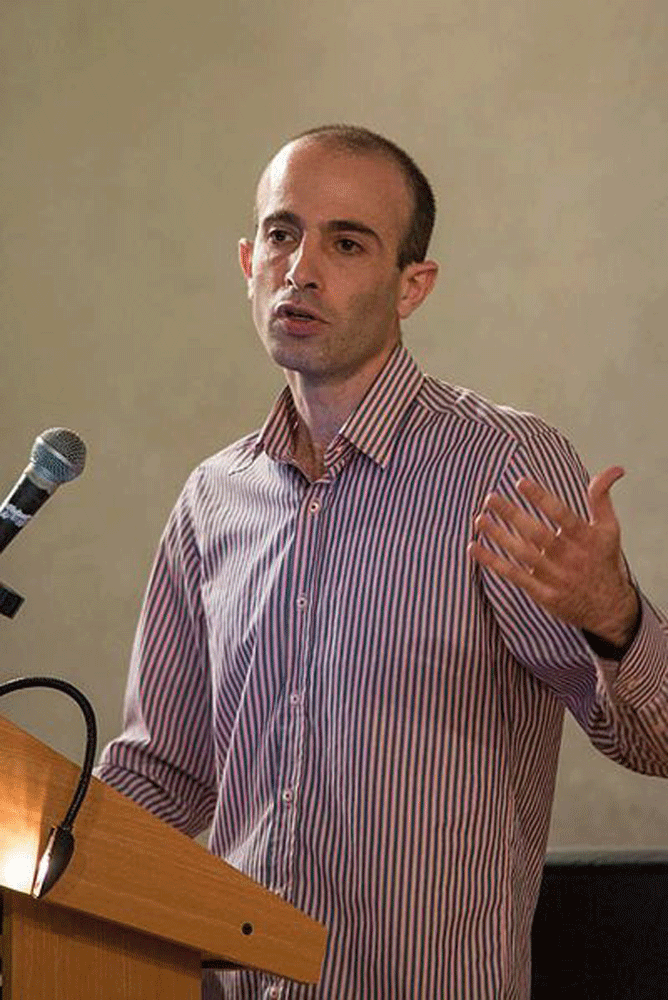
Ariel Dankner
Yuval Noah Harari, Israeli professor at the Department of History of the Hebrew University of Jerusalem and author of the international bestseller “Sapiens: A Brief History of Humankind,” shared his intellect with a crowd of admirers at the University of California, Santa Barbara last Monday.
Fans began lining up at the doors of Campbell Hall up to two hours before the lecture to receive a copy of Harari’s latest novel, “Homo Deus: A Brief History of Tomorrow,” a copy of which was promised to the first 100 guests. UCSB student Nicolas Paige was one of the hundred to receive a copy of Harari’s latest novel.
“I’ve heard a lot of praises about Yuval’s book, and I am really stoked to hear him speak,” said Paige, a second year interdisciplinary major.
Born in Haifa, Israel, Harari researches the essential differences between homo sapiens and other animals, arguing that human imagination coupled with our ability to believe in collective myths and fiction is what gives us our remarkable capacity and power. Harari’s presentation was followed by an extensive Q&A accompanied by a book signing.
After being formally introduced by Jonathan Schooler, a psychology professor at UCSB, Harari began his presentation by discussing the most important sources of authority in politics, economics, and ethics over the last few centuries—the great gods. “This entire story of humanism,” explained Harari, “is really based on outdated science and an outdated understanding of the world.”
The next portion of Harari’s presentation focused on algorithms and their potential for being the new rulers of the world.
“If we only have enough data and enough computing power, we can create external algorithms that understand humans and their feelings much better than humans can understand themselves,” Harari explained. “And once you have an algorithm that understands you and understands your feelings better than you understand yourself, this is the point when authority really shifts away from humans to algorithms.”
The remainder of Harari’s presentation was dedicated to explaining the aforementioned quote, which evoked a sense of fear in the audience. The idea that computers may be taking over humanity is not the easiest concept to digest.
Harari stressed the importance of paying close attention to our innate responses to the physical world. Our senses act as a natural algorithm, taking in data from our surroundings, calculating the probabilities through our nervous system, and spewing out the results in the form of a feeling or an emotion.
Feelings, Harari described, are the “process of biochemical calculation shaped by millions of years of natural selection to enable humans and other mammals and animals to make good decisions when they are faced with problems of survival and reproduction,”
Today, Harari explained, people look to Amazon, Google, or Facebook for advice on major life decisions. People trust these algorithms with the authority to make decisions, such as allowing Google maps to navigate through unfamiliar towns or trusting Amazon’s individually tailored book suggestions.
“If you don’t like some of the scenarios and some of the possibilities that I have outlined tonight,” Harari concluded, “you should know that you can still do something about it.”










